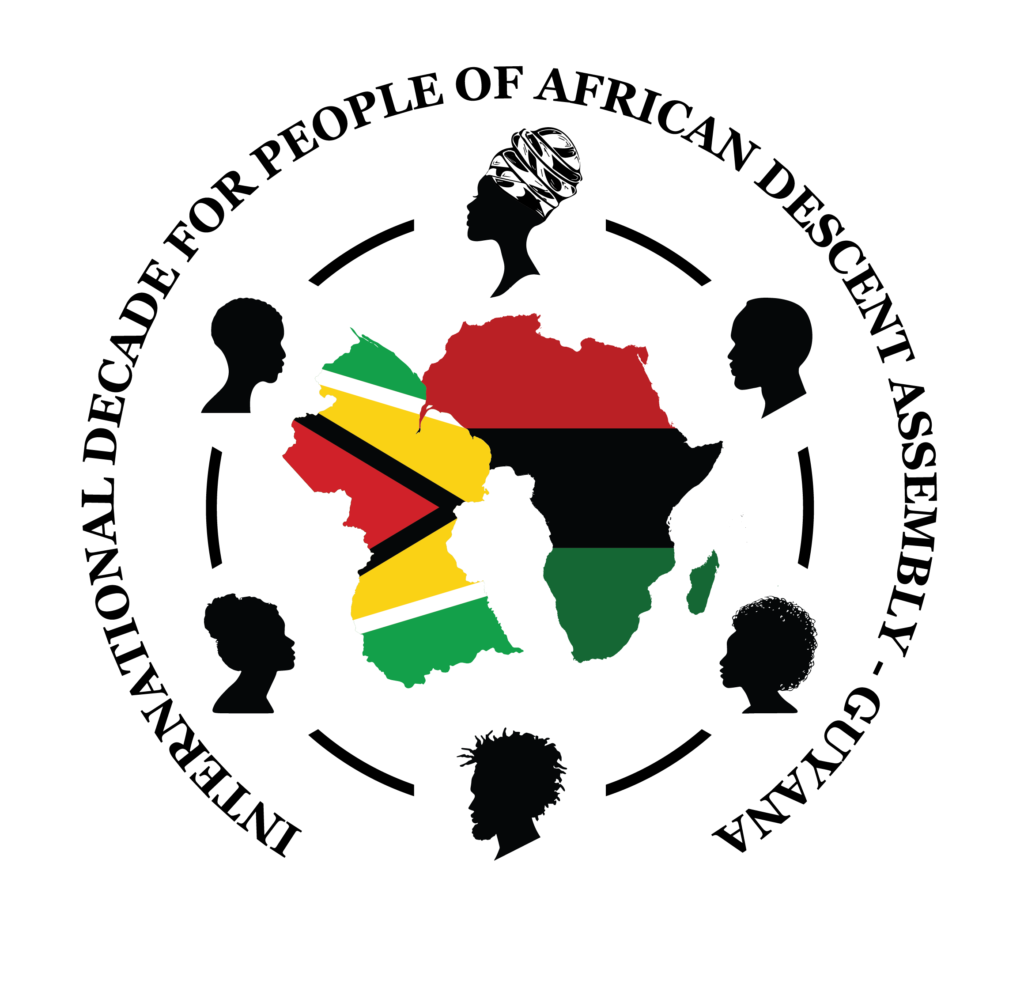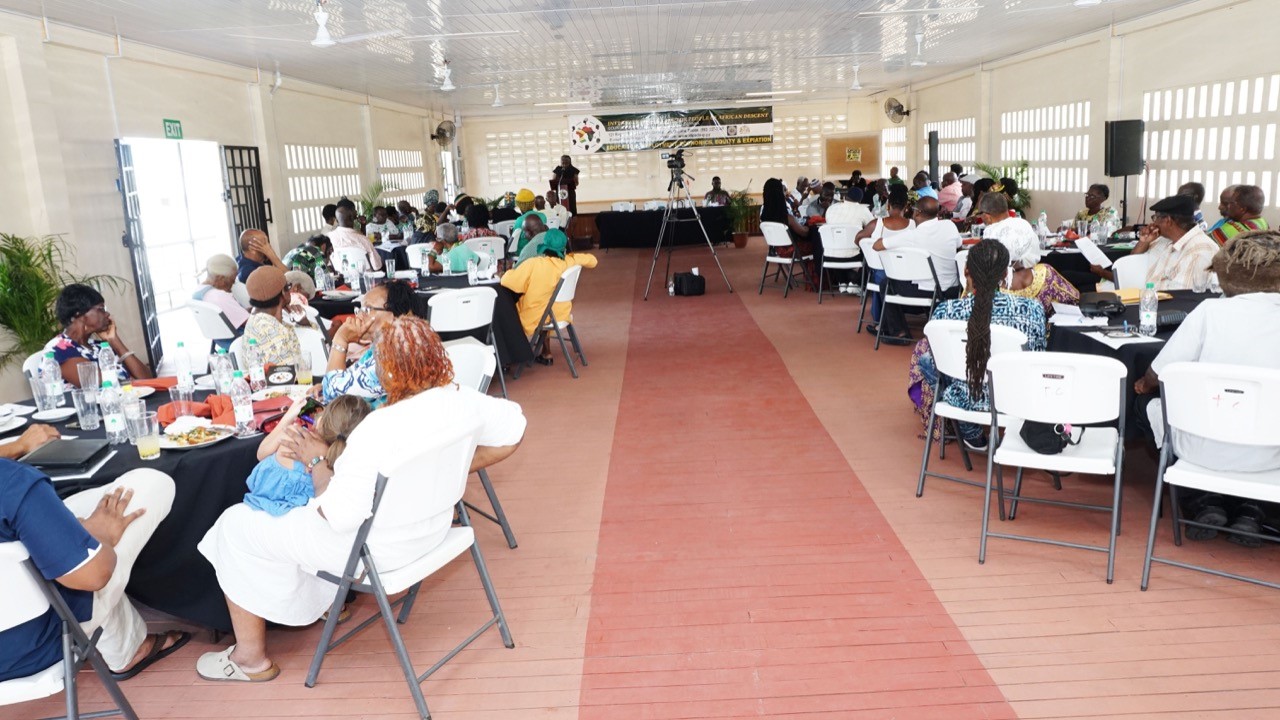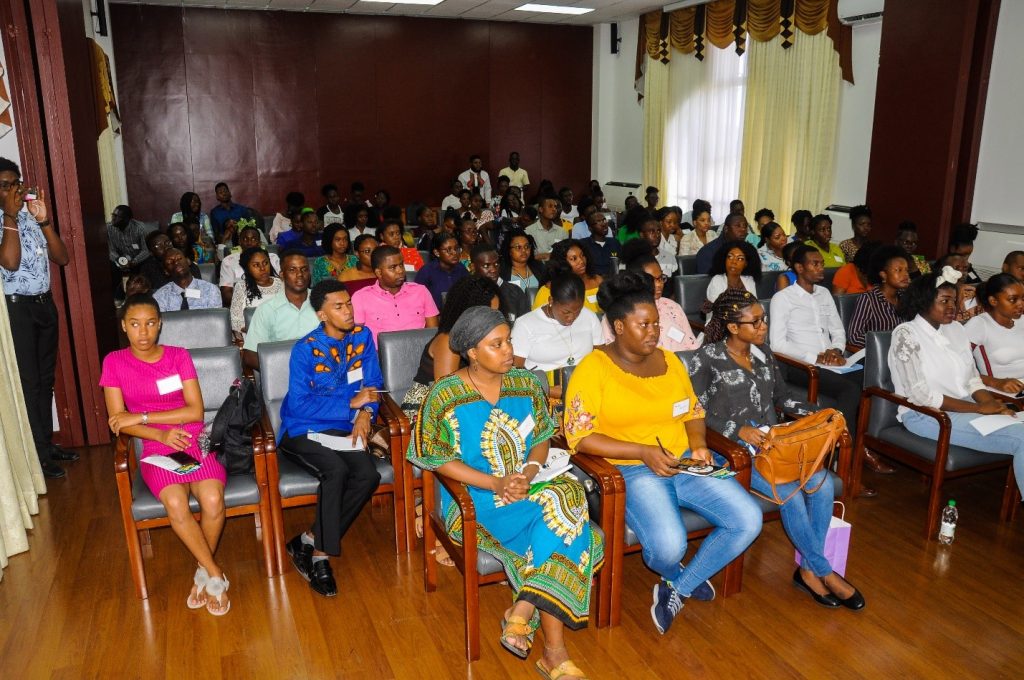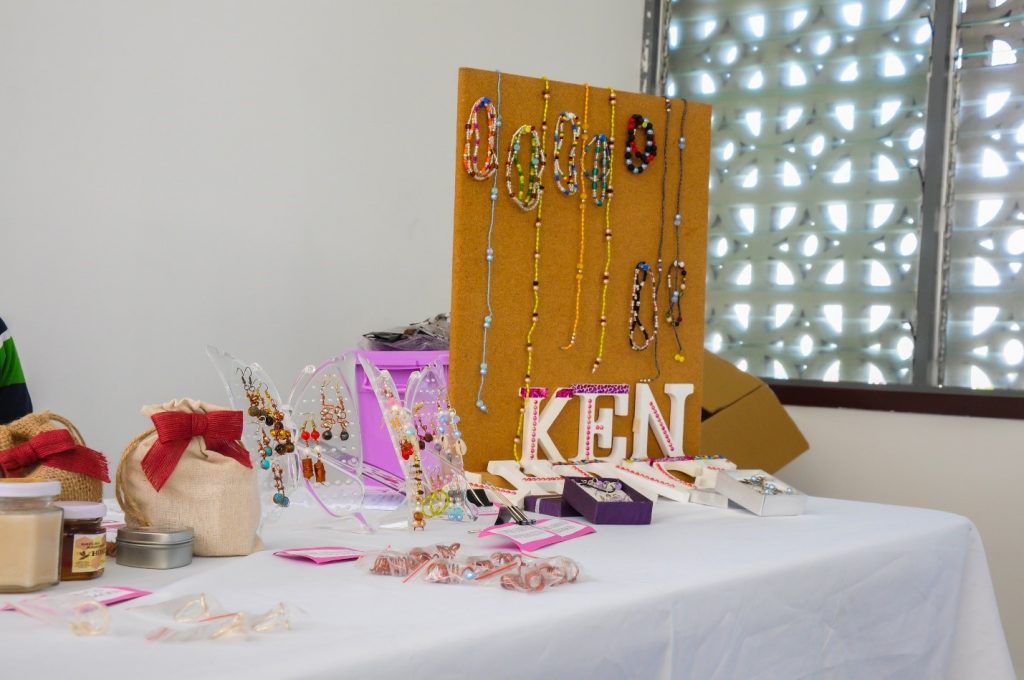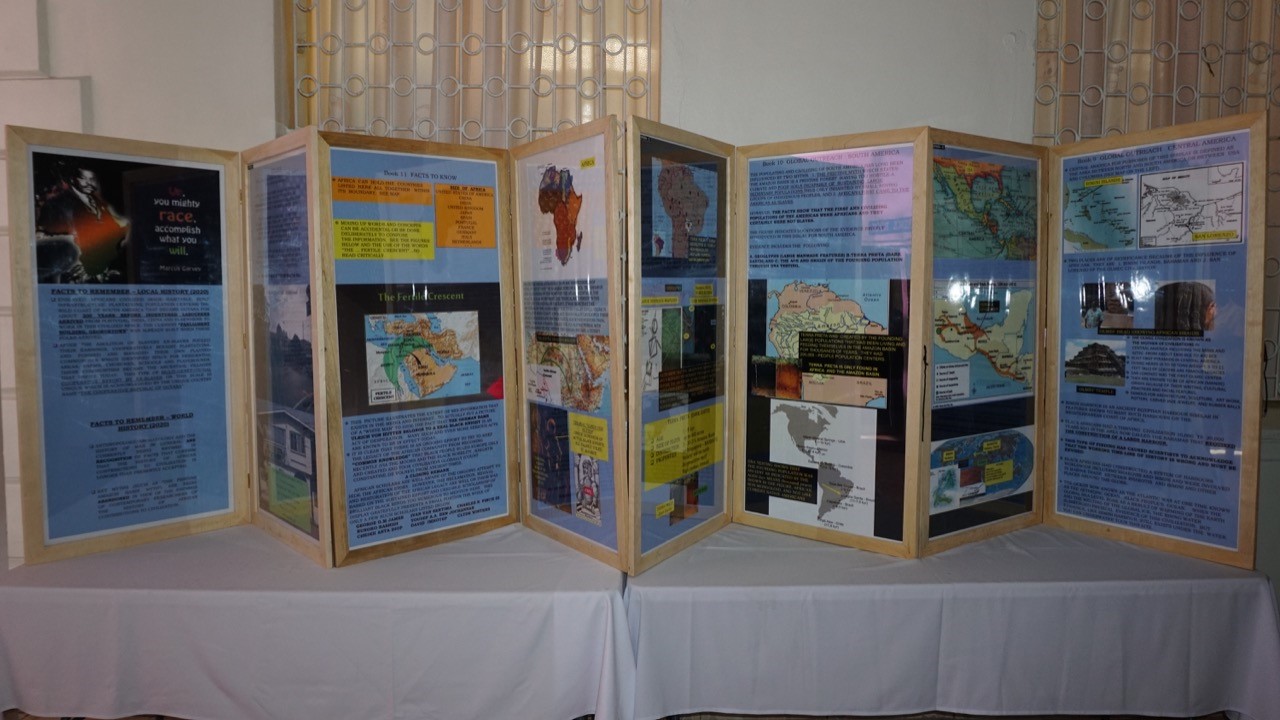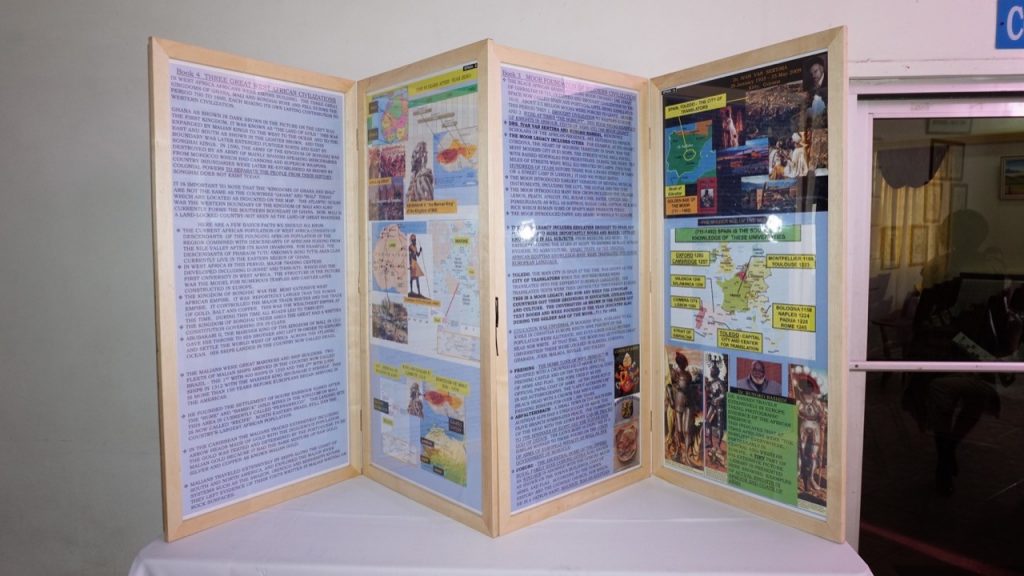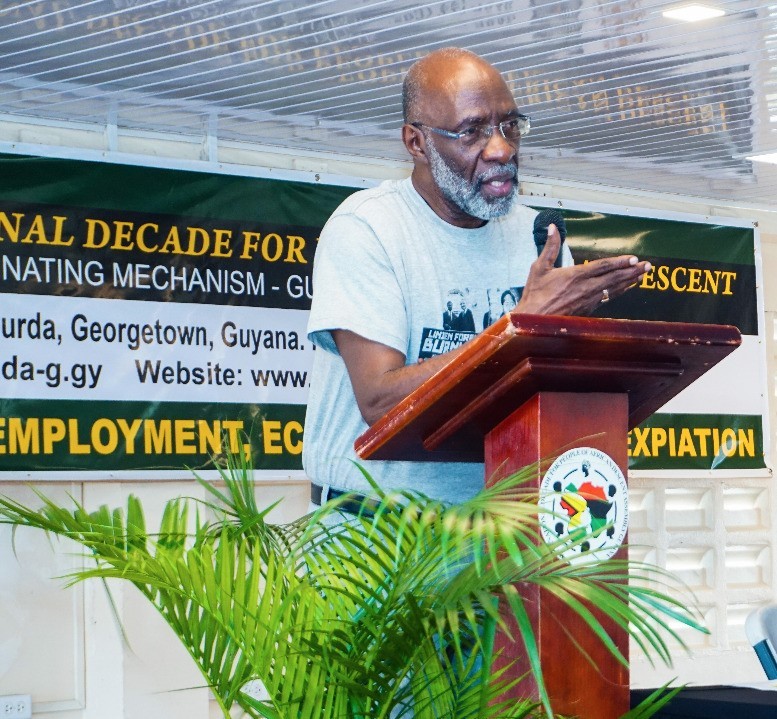- 1. Introduction
1.0 We, the representatives of PAD, assembled at the IDPADS 2018 Georgetown, Guyana, from 8 to 11 March 2018, to reaffirm our commitment to the development of PAD. We engaged in seven panel discussions on the theme.
1.1 During our first roundtable session we audit ed where we are in Information and Communications Technology (ICT), Business and Financial Literacy, Education and Culture, Health and Wellness, Human Rights and Geopolitics. We explored where we ought to be and then designed strategies on how to get there by 2024, and beyond. Accordingly,
1.1.1 we committed to creating programs to address the plight of people of African descent, from Womb to Tomb (Ancestral Realm) in the fields identified above ;
1.1.2 for pilot programs, we agreed to use Guyana as the model and committed to expanding the model to other locations where people of African descent reside;
1.1.3 committee Chairpersons were identified in the areas of ICT, Business and Financial Literacy, Education and Culture, Health and Wellness, Human Rights and Geopolitics. The committee heads will be responsible for ensuring t hat each committee fulfils its obligations towards the success of the projects.
- Where We Are
2.0 Information Communication Technology
2.0.1 PAD are under-represented in the field of ICT and there is a dearth of STEM programs and ICT infrastructure in communities dominated by PAD.
2.0.2 Financing for development of ICT sector in African descendants’ communities is lacking.
2.0.3 Data/information is being continuously collected on PAD online to advance algorithms that can affect us both positively and negatively.
2.1 Business and Financial Literacy
2.1.1 PAD all over the globe continue to be economically deprived and are being outpaced by other ethnic groups.
2.1.2 A few successful business models have worked to develop businesses of people of African descent and provide avenues for access to capital.
2.1.3 The City of Atlanta Minority Set Aside Program and U.S. Small Business Administration 8(a) Business Development Program were successful in empowering PAD in the USA to become entrepreneurs.
2.2 Education and Culture
2.2.1 Our history has been distorted and the image of “Africa” today continues to be displaced.
2.2.2 More PAD children are being placed in special education and are left behind in the school system.
2.2.3 There is need for more focus on STEM based education in PAD communities.
2.2.4 Affirmative Action in USA successfully contributed to PAD college enrolment.
2.2.5 Girls and women are embracing their natural beauty and Afrocentric styles.
2.2.6 There is growing interest in traditional African spirituality.
2.3 Health and Wellness
2.3.1 There is a lack of disaggregated data on the health and wellness status of PAD.
2.3.2 There is an alarming deficiency in resources to address the mental, social and physical health of PAD. These include infrastructure, health professionals and financial resources.
2.3.3 PAD are withdrawing from their traditional health practices – herbal remedies, healthy eating and exercise.
2.4 Human Rights and Geopolitics
2.4.1 There is a lack of United Nations Human Rights offices stationed in most Latin American and Caribbean territories where PAD resides.
2.4.2 There is a lack of African States consulate offices in most Latin American and Caribbean territories and vice versa, thus impeding improved relations between Africa and Diaspora in Latin America and the Caribbean.
2.4.3 There is a lack of human rights awareness campaigns and authority bodies, and consequently, a lack of awareness by PAD of their human rights and mechanisms available to demand same.
- Where We Ought to Be, How do We Get There
3.0 The ICT Institute is committed to the following:
3.0.1 establishing ICT hubs that will be equipped with modern technologies that will facilitate teaching and learning
3.0.2 designing programs and curricula that will be used for the advancement of PAD in STEM
3.0.3 creating a think-tank to assess the impact of artificial intelligence on the African community
3.0.4 developing applications to register African descendant businesses, globally in the effort of advancing the black economy
3.1 Business and Financial Literacy Institute is committed to the following:
3.1.1 developing systems to facilitate the sharing of expertise in Engineering to develop landlocked nations in Africa and Latin America
3.1.2 calling on authorities to contribute to the improvement of air and land transportation between Africa and the diaspora, especially through the Caribbean, to facilitate communication, trade and tourism
3.1.3 developing the global black economy to facilitate the needs of PAD, having acknowledged that PAD need to be responsible for their economic growth
3.1.4 establishing PAD Credit Unions and Banks in communities where PAD are deprived of accessing finances from financial institutions
3.1.5 exploring the establishment of PAD Funding Co-operatives – Diaspora engagement wealth fund
3.1.6 establishing PAD Venture Capitalists Groups to provide loans for start-up businesses
3.1.7 lobbying the Government to fund programs which are in keeping with the United Nations IDPAD theme – Justice, Recognition and Development
3.1.8 making financial literacy/education mandatory within our community
3.1.9 encouraging African and African descendant families to treat a bank account as important as a birth certificate for each newborn, symbolic of the first step towards becoming financially literate
3.1.10 designing financial literacy programs for each level of the development stage to further develop the financial skills of PAD
3.1.11 promoting financial literacy education and creating a financial literacy curriculum modeling Freddie Mac’s Credit Smart Program, John Hope Bryant’s Operation Hope Financial Literacy Program and HUD Financial Literacy counseling tenets, to birth a more intentional program to specifically serve our communities
3.1.12 developing minimum standards for financial education covering savings, budgeting, credit, insurance, home ownership, retirement, investment and financial fraud
3.1.13 using educational games to impart financial education to our community children via social networking groups in a fun but effective way to spread financial literacy knowledge
3.1.14 creating an entrepreneurship development training program
3.1.15 reiterating the importance of women in development of the African family, thus encouraging women owned business entrepreneurship programs
3.1.16 creating business start-up competitions to encourage entrepreneurship development
3.1.17 providing legal clinics in setting up businesses according to country regulations (pro bono and low cost services by business attorneys)
3.2 Education and Culture Institute is committed to the following:
3.2.1 developing a womb to tomb education model for the advancement of PAD
3.2.2 encouraging Governments to provide schools with materials specific (and authentic) to pre- slavery and post slavery African History
3.2.3 working in the communities to establish STEM after school programs so that our children can be competitive enough to survive in this technological era
3.2.4 inviting Governments to consider education models like that used in the USA which resulted in high enrollment of PAD in colleges
3.2.5 create a Historical Memory Center to document achievements made by PAD
3.2.6 protect the emotional and physical integrity of PAD
3.3 Health and Wellness Institute is committed to the following:
3.3.1 encouraging HBCUs, Universities in Africa and other tertiary institutions attended by PAD to facilitate research theses on health related issues affecting PAD in the effort of collecting disaggregated data and exploring solutions to the health issues faced by PAD
3.3.2 encouraging institutions, indicated above, to facilitate research on traditional herbal practices to increase the production and use of herbal medicine with appropriate dosing
3.3.3 engaging with experts that have information about the use of traditional healing practices to prevent duplication of resources
3.3.4 creating a womb to tomb (ancestral realm) health and wellness program geared to improving the health practices of women and children
3.3.5 lobbying for financial resources for improving the health care infrastructure in PAD communities; and working towards making available, more health care professionals/specialists in PAD communities
3.4 Human Rights and Geopolitics Institute is committed to the following:
3.4.1 upholding that a Regional United Nations Human Rights Office must be established within the CARICOM
3.4.2 upholding that national Human Rights centers be established in multicultural nations that have PAD, whether they are the majority or minority within the population
3.4.3 seeking out government support in facilitating the establishment more African consulates/embassies in the diaspora, in the effort to foster communication and trade between Africa and the diaspora
3.4.4 encouraging the establishment of more diaspora consulates/embassies in Africa
3.4.5 keeping the memories of our ancestors alive by lobbying for an international day of recognition of the African Maafa
- Destination 2024
4.0 Recognizing that not enough time is available for us to achieve our goals set by 2024, more work and follow-up meetings must be organized to achieve most of our objectives for the decade.
4.1 we are determined to have yearly follow-up meetings for experts to address what was achieved in previous year, what will be achieved in the coming year and the obstacles that are preventing us from achieving our goals.
4.2 we commit to participating in the bi-weekly to monthly committee meetings scheduled among the five (5) Institutes to ensure deliverables are met.
